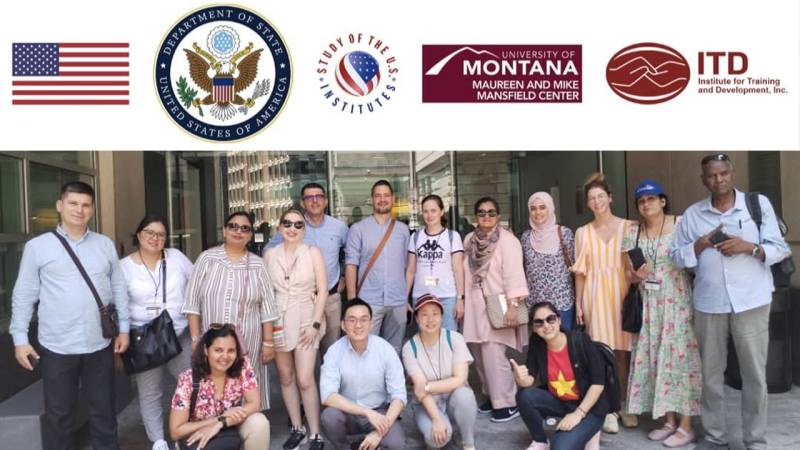In an increasingly interconnected world, fostering cross-cultural understanding has never been more crucial. The Study of U.S. Institutions program, a collaborative effort between the U.S. Department of State Bureau of Education and Cultural Affairs and the Institute of Training and Development (ITD), is dedicated to bridging cultural gaps and promoting global dialogue. Scholars from diverse backgrounds gather to study economics, business, and sustainable development in the United States, resulting in a unique blend of academic enrichment and intercultural camaraderie.
The program's overarching objective is to provide scholars with an immersive experience, allowing them to not only delve into the intricacies of U.S. institutions but also to form lasting connections with peers from around the world. Kathy Katie Lazdowski, the program director, emphasizes that the Study of U.S. Institutions program extends beyond academic learning. "It's about embracing diverse perspectives, challenging stereotypes, and fostering relationships that transcend borders," she explains.
The program's impact on participants is evident through the stories and insights shared by the international delegates. One scholar from Mexico reflects on the program's invaluable lessons in respect and tolerance. "The most important thing I've learned is to be respectful and tolerant of different cultures," they note. Such personal growth reflects the program's emphasis on building bridges and breaking down cultural barriers.
Further highlighting the program's impact, a delegate from Slovakia, also the group's photographer, attests to the power of mutual assistance. "We discovered the joy of helping each other," they share. Volunteering at a local event, the scholars witnessed the collective strength that arises from unity and support, transcending language and cultural differences.
Marlene, a delegate from Honduras, echoes these sentiments, emphasizing the shared experiences and bonds formed during the program. "Learning about photography and other cultures has been eye-opening," she remarks. The scholars' connections with each other and their professors showcase the program's commitment to fostering lasting relationships and promoting cross-cultural dialogue.
Perhaps most inspiring is the testimony from Heba, a participant from Egypt, who emphasizes the program's role in promoting knowledge exchange and understanding between different faiths and cultures. "It's been a two-way learning experience, and the cultural aspect has been invaluable," she shares. Such insights underline the program's broader goal of equipping scholars with tools to address global challenges through open-mindedness and collaboration.
The impact of the program becomes even more pronounced when considering the interactions between scholars from countries that might have historically strained relations. The camaraderie between delegates from India and Pakistan is particularly noteworthy. Despite political tensions, these scholars have forged strong connections, dispelling preconceived notions and creating a space for shared understanding. "We've learned that we're more alike than we thought," a delegate from India says, highlighting the program's role in fostering people-to-people diplomacy.
Kathy Katie Lazdowski acknowledges the program's role in nurturing such bonds and reshaping perceptions. "Each group has its unique dynamics, but the bonds formed through this program often lead to lasting connections and collaborations," she emphasizes. This sentiment echoes the program's profound impact on shaping a more interconnected and compassionate global community.
Beyond the academic lectures and discussions, the program encourages participants to embrace their own cultural identities. Delegates from various countries have brought their traditions, languages, and unique perspectives to the table, enriching the overall experience. The diversity of backgrounds has led to engaging exchanges of ideas, strengthening the scholars' appreciation for the richness of global cultures.
The program's impact extends beyond its duration, as scholars bring their newfound knowledge and perspectives back to their home countries. Zubda, a delegate from Pakistan, shares her commitment to dispelling misconceptions about her country. "It's an honor to represent Pakistan and learn from others," she affirms. Through personal interactions and shared experiences, these scholars become ambassadors of cross-cultural understanding, contributing to a more nuanced and interconnected world.

